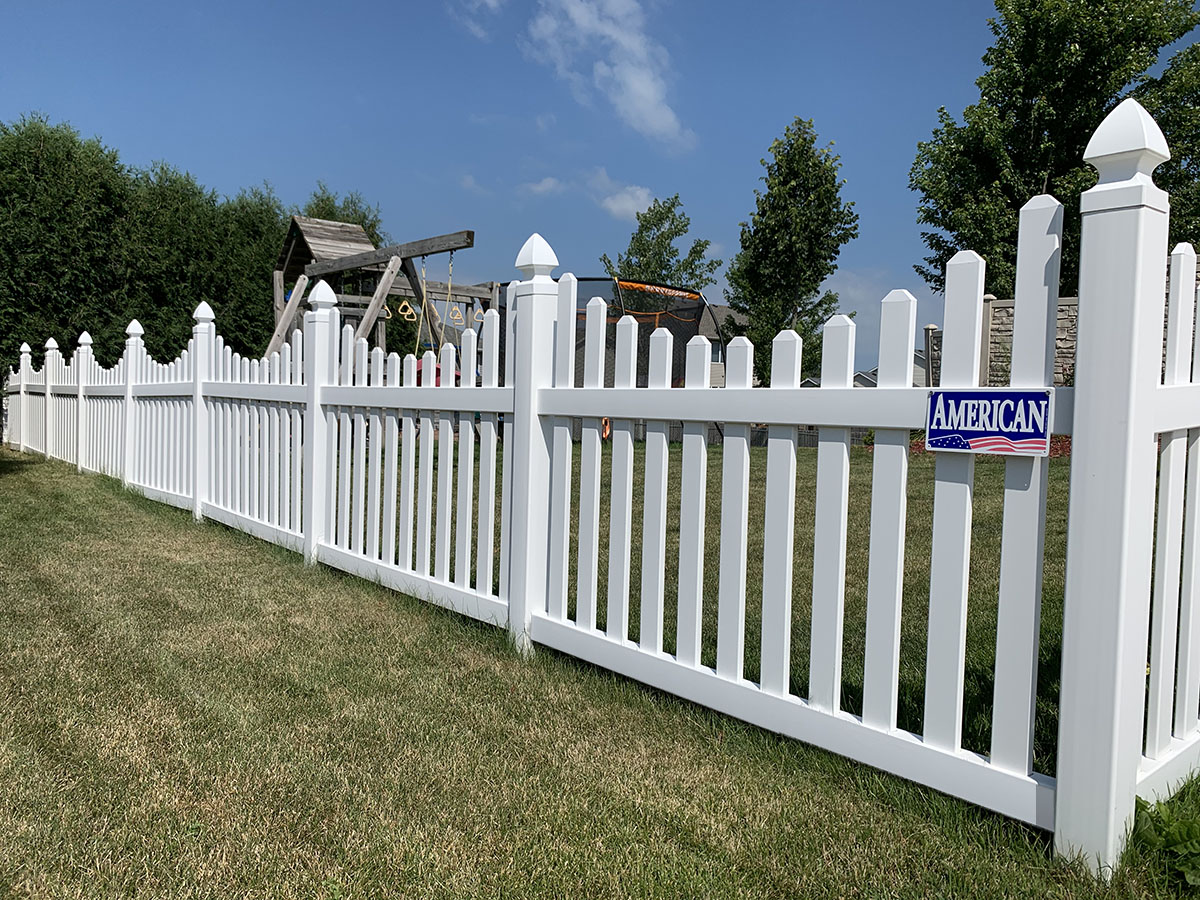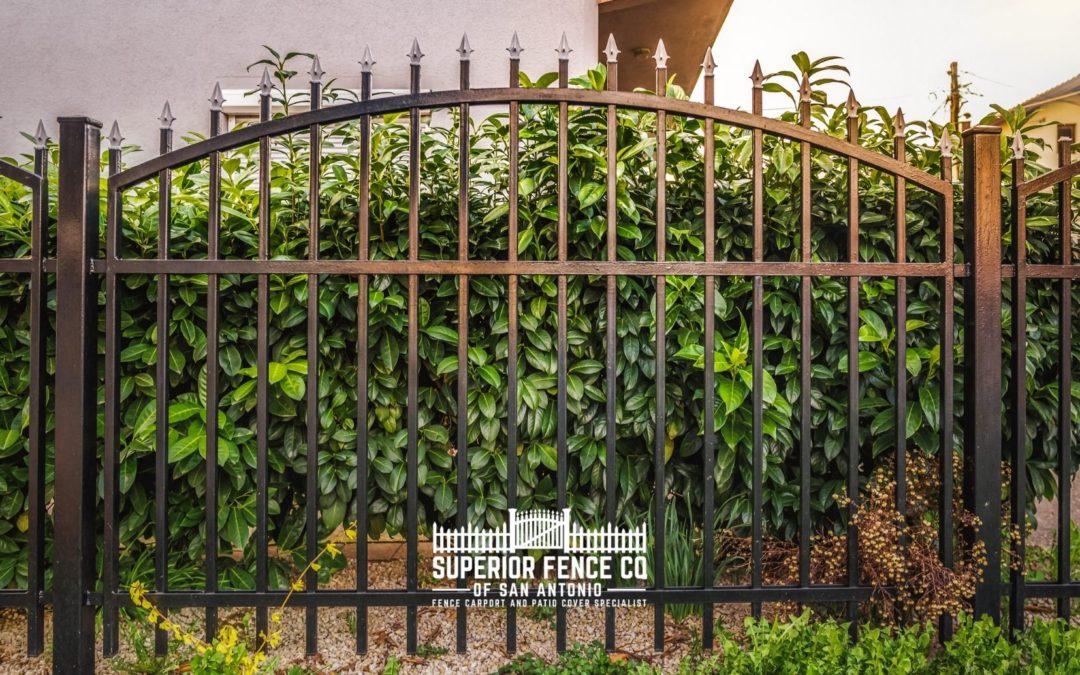All Categories
Featured
If you're thinking about mounting a fence around your home, recognizing the permit needs in your location is crucial. In this overview, we'll break down the various authorizations you may need to set up a fencing and exactly how to ensure your task remains certified with regional legislations.
Why Are Permits Necessary for Fencing Setup? Licenses are required to make certain that the fence you build adheres to neighborhood structure codes, zoning laws, and security requirements. They make certain that the fencing won't obstruct energies, website traffic circulation, or create dangers for pedestrians.
![]()
Kinds of Permits You Might Requirement. Structure License. A structure authorization is the most typical requirement for installing a fencing. If your fencing exceeds a certain elevation (typically around 6 feet), you might require to get a structure authorization.
Zoning Permit. Zoning laws govern land usage in your area, and they often manage where fencings can be installed, in addition to just how tall they can be. A zoning license makes certain that your fencing adheres to these guidelines. For instance, your fencing may require to be established back a particular distance from walkways or building lines. Zoning policies can differ by neighborhood, so it's vital to inspect the details guidelines that apply to your location.
Homeowners Association (HOA) Authorization. If your residential or commercial property is component of a house owners association, you might require approval before installing a fence. HOAs often have stringent rules concerning the type, style, and materials made use of for fences to maintain a consistent look throughout the neighborhood. The HOA may require you to send detailed strategies or request approval prior to installment. Make sure you follow these standards to avoid possible fines or fines.
Specialized Permits. In many cases, you might require specialized permits based upon the place of your home or the nature of your fencing. If your residential or commercial property is in a flooding zone, you may need added permits to ensure that your fence does not block drainage or water flow. If you intend to construct a fence near an environmentally safeguarded location, you may need an unique permit to conform with ecological policies.
![]()
Energy Easements and Energy Firm Approvals. Some residential or commercial properties have utility easements, which are areas designated for utility lines, pipes, or cords. Prior to installing a fence, you must examine if your home has an easement. Building a fence within an easement could disrupt energy maintenance or damage underground lines. You might need authorization from the energy firm or local authorities before proceeding with the setup.
Exactly How to Determine Which Allows You Need. Get In Touch With Regional Authorities. The initial step in identifying the licenses required is to call your local building division or zoning office. They can supply specific information concerning what licenses are necessary for your location. Numerous cities have online sources or portals where you can check the demands or perhaps make an application for a license online.
Speak With a Professional Fencing Professional. A neighborhood fencing contractor is often knowledgeable about the permit procedure and regional regulations. They can aid you navigate the demands and make sure that your project is compliant. Many professionals also handle the license application procedure on your behalf, conserving you effort and time.
Testimonial Your Area's HOA Guidelines. If you live in an area controlled by an HOA, make sure to evaluate their guidelines prior to getting any kind of licenses. The HOA might need certain styles, products, or height limitations for fencings within the neighborhood. Submit your strategies to them for approval prior to continuing.
![]()
Consequences of Not Acquiring a Permit. Mounting a fence without the called for licenses can lead to serious repercussions. Prospective purchasers may think twice to purchase a building with an unpermitted fencing, especially if it's in offense of zoning legislations.
Conclusion. Before installing a fence on your property, make certain you comprehend the neighborhood policies and obtain any type of required authorizations. Building licenses, zoning permits, HOA approvals, and specialty allows all play a crucial duty in making sure that your fencing is risk-free, legal, and compliant. Taking the time to research study and protect the ideal authorizations will certainly conserve you from costly mistakes and possible lawful concerns in the future. Whether you're planning a privacy fencing or an attractive boundary, following these actions will assist make the installment procedure smooth and problem-free.
Why Are Permits Necessary for Fencing Setup? Licenses are required to make certain that the fence you build adheres to neighborhood structure codes, zoning laws, and security requirements. They make certain that the fencing won't obstruct energies, website traffic circulation, or create dangers for pedestrians.

Kinds of Permits You Might Requirement. Structure License. A structure authorization is the most typical requirement for installing a fencing. If your fencing exceeds a certain elevation (typically around 6 feet), you might require to get a structure authorization.
Zoning Permit. Zoning laws govern land usage in your area, and they often manage where fencings can be installed, in addition to just how tall they can be. A zoning license makes certain that your fencing adheres to these guidelines. For instance, your fencing may require to be established back a particular distance from walkways or building lines. Zoning policies can differ by neighborhood, so it's vital to inspect the details guidelines that apply to your location.
Homeowners Association (HOA) Authorization. If your residential or commercial property is component of a house owners association, you might require approval before installing a fence. HOAs often have stringent rules concerning the type, style, and materials made use of for fences to maintain a consistent look throughout the neighborhood. The HOA may require you to send detailed strategies or request approval prior to installment. Make sure you follow these standards to avoid possible fines or fines.
Specialized Permits. In many cases, you might require specialized permits based upon the place of your home or the nature of your fencing. If your residential or commercial property is in a flooding zone, you may need added permits to ensure that your fence does not block drainage or water flow. If you intend to construct a fence near an environmentally safeguarded location, you may need an unique permit to conform with ecological policies.

Energy Easements and Energy Firm Approvals. Some residential or commercial properties have utility easements, which are areas designated for utility lines, pipes, or cords. Prior to installing a fence, you must examine if your home has an easement. Building a fence within an easement could disrupt energy maintenance or damage underground lines. You might need authorization from the energy firm or local authorities before proceeding with the setup.
Exactly How to Determine Which Allows You Need. Get In Touch With Regional Authorities. The initial step in identifying the licenses required is to call your local building division or zoning office. They can supply specific information concerning what licenses are necessary for your location. Numerous cities have online sources or portals where you can check the demands or perhaps make an application for a license online.
Speak With a Professional Fencing Professional. A neighborhood fencing contractor is often knowledgeable about the permit procedure and regional regulations. They can aid you navigate the demands and make sure that your project is compliant. Many professionals also handle the license application procedure on your behalf, conserving you effort and time.
Testimonial Your Area's HOA Guidelines. If you live in an area controlled by an HOA, make sure to evaluate their guidelines prior to getting any kind of licenses. The HOA might need certain styles, products, or height limitations for fencings within the neighborhood. Submit your strategies to them for approval prior to continuing.

Consequences of Not Acquiring a Permit. Mounting a fence without the called for licenses can lead to serious repercussions. Prospective purchasers may think twice to purchase a building with an unpermitted fencing, especially if it's in offense of zoning legislations.
Conclusion. Before installing a fence on your property, make certain you comprehend the neighborhood policies and obtain any type of required authorizations. Building licenses, zoning permits, HOA approvals, and specialty allows all play a crucial duty in making sure that your fencing is risk-free, legal, and compliant. Taking the time to research study and protect the ideal authorizations will certainly conserve you from costly mistakes and possible lawful concerns in the future. Whether you're planning a privacy fencing or an attractive boundary, following these actions will assist make the installment procedure smooth and problem-free.
Latest Posts
Discover Outstanding Vehicle Maintenance Care in Chicago – Drive with Confidence
Published en
1 min read
Uncover Cost-Effective Auto Repairs with Montclare’s Limited-Time Service Specials
Published en
1 min read
Find Brake Repair & More: Complete Services Guide from Montclare Auto Repair
Published en
1 min read
More
Latest Posts
Discover Outstanding Vehicle Maintenance Care in Chicago – Drive with Confidence
Published May 27, 25
1 min read
Uncover Cost-Effective Auto Repairs with Montclare’s Limited-Time Service Specials
Published May 26, 25
1 min read
Find Brake Repair & More: Complete Services Guide from Montclare Auto Repair
Published May 26, 25
1 min read